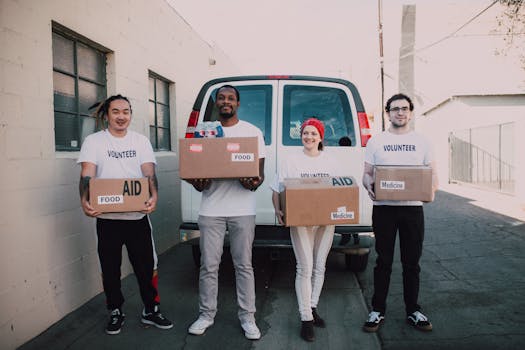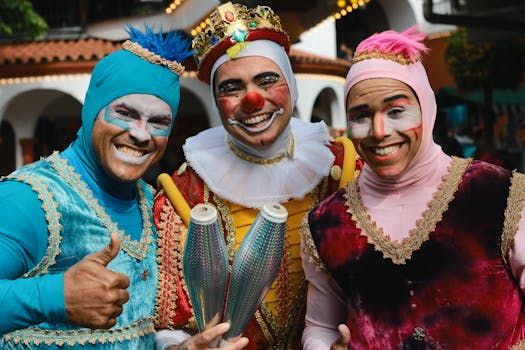You could do a foundation degree or degree in a subject like:
- education
- sociology
- youth work
- community development
Entry requirements
You'll usually need:
- 2 to 3 A levels, or equivalent, for a degree
A Volunteer Coordinator is responsible for recruiting, training, and supervising volunteers within organisations such as charities, local authorities, and public services. The role involves matching volunteers to suitable opportunities, organising rotas, providing ongoing support, and ensuring that volunteers feel valued. Volunteer Coordinators also help develop policies, run induction sessions, and may organise volunteer appreciation events. This is a people-focused job that requires excellent communication, organisational, and leadership skills. Most Volunteer Coordinators work office hours, but some roles may require evening or weekend work to support events or meet with volunteers.

Volunteer Coordinators in the UK typically earn between £21,000 and £30,000 per year, depending on experience and location.
As of 2023, there are over 3,500 advertised Volunteer Coordinator positions in the UK, with many roles in the charity and public sector.
The demand for Volunteer Coordinators is expected to grow by approximately 7 percent over the next five years, especially in health and social care sectors.

Organises and leads volunteer activities specifically for young people, helping them gain skills and contribute to their local community.

Manages volunteers who support charity events such as fundraising runs, fairs, or awareness campaigns.
Oversees volunteers working on environmental projects such as tree planting, litter picking, or wildlife conservation efforts.
Get involved in local volunteering opportunities to understand how volunteer programmes operate.
Start by volunteering with charities, schools, or community groups. This will give you insight into how volunteers are recruited, organised, and supported. It also helps you build contacts and develop a passion for community work, which is essential for this career.
Build skills in organisation, communication, and teamwork through extracurricular activities or part-time jobs.
Take on roles that involve organising events, leading teams, or planning activities. This could be in student societies, sports clubs, or even retail jobs where customer service and teamwork are important. These experiences help you develop the skills needed to coordinate volunteers effectively.
Consider further education in fields such as social sciences, community development, or management.
While a degree is not always required, courses in social work, human resources, or public administration can be helpful. Some colleges and universities offer specific modules or qualifications related to volunteer management or charity work.
Complete short courses or workshops on volunteer management and leadership.
Look for training offered by organisations like the National Council for Voluntary Organisations (NCVO) or local volunteer centres. These courses cover topics such as recruitment, safeguarding, and supporting volunteers, which are valuable for your future role.
Look for assistant or junior volunteer coordinator positions in charities, hospitals, or community groups.
Check job boards, charity websites, and local councils for openings. Entry-level roles often look for experience with volunteering and strong communication skills rather than specific qualifications, so highlight your volunteering and organisational experience.
Build your skills and experience on the job, and seek further training or networking opportunities.
Join professional networks, attend conferences, or complete additional courses. Staying up to date with best practices in volunteer management can help you progress to more senior positions or specialise in areas such as training or policy.
Explore relevant apprenticeships that can help you kickstart your career in Volunteer Coordinator. Apprenticeships offer hands-on experience and training while earning a wage.
This page showcases various career options and the pathways to reach them. Each career listed here shares transferable skills and knowledge, making it easier for individuals to transition between them.
Your current career is highlighted to help you see how it fits into the broader landscape of potential career choices. By clicking on any career, you can learn more about it, including the training and education required to pursue it.
Remember, progressing in your career often involves further learning and training. This page provides insights into future career options as well as those that can lead up to your current one.
These career progression decisions are informed by comparing the skills and knowledge needed for different occupations, along with data on how people move between them. Explore the possibilities and discover the exciting journey ahead in your career!
A Volunteer Coordinator and a Community education co-ordinator both require skills in organising, managing volunteer or community activities, and engaging with the public. Both roles involve coordinating efforts to support community development and ensuring effective communication among stakeholders.
You can get into this job through:
You could do a foundation degree or degree in a subject like:
You'll usually need:
You could do a college course which might be useful when applying for a trainee job. Courses include:
Entry requirements for these courses vary.
You could start by doing a Level 3 Advanced Apprenticeship as a:
These apprenticeships can take around 1 year and 6 months to complete.
You'll usually need:
You could become a community education co-ordinator though volunteering.
Volunteering is a good way to get practical experience, meet new people and develop your network of contacts. This might help you when looking for a job in community education or development.
You can find volunteering opportunities through The National Council for Voluntary Organisations (NCVO) and Do It.
You could apply directly for community education co-ordinator jobs.
You'll need paid or voluntary experience of working in the community such as in:
You'll also find it helpful to have experience of working with disadvantaged or vulnerable groups.
You can find your local council to get more details about working in your community or learn about working in community education through Locality.
Explore other careers or use our AI to discover personalised paths based on your interests.
Address
Developing Experts Limited
Exchange Street Buildings
35-37 Exchange Street
Norwich
NR2 1DP
UK
Phone
01603 273515
Email
[email protected]
Copyright 2026 Developing Experts, All rights reserved.
Unlock expert-designed lessons, resources, and assessments tailored for educators. No credit card required.
Claim Your Free Trial →